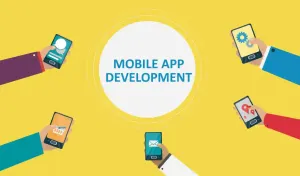Just like the evolving mobile app industry, the frameworks used to develop them keep on evolving too. While the basics remain the same, a number of others come up every other year to enable the primary structures in making the app development process faster and easier from design to speed.
Best Mobile App Development Frameworks
If you are planning to launch a mobile or web app this year, here are the 10 frameworks that you need to discuss with your mobile app development firm, because they are here to stay…
Topcoat
It is an open source CSS library that is designed to help mobile app developers make apps that emphasize on speed. It aims at understanding and then altering every CSS control impacting the layout, loading, and frames per second.
Lungo
Lungo is the lightweight mobile framework that is based on CSS3 and HTML5. It has nicely designed default styles, which can be used as the starting point when designing your mobile app. Apart from the mobile UI components, it brings a number of other JavaScript API to control the app. Blackberry, iOS, Firefox OS, and Android are the platforms on which Lungo works.
Mobile Angular UI
The framework mixes the best of web we already know - Twitter Bootstrap and AngularJS. Together, these elements enables one to create web and hybrid apps. Mobile Angular UI gives essential mobile features missing in Bootstrap 3 like the overlays and switches etc.
Framework7
It is an open source and free mobile HTML framework which helps in developing both hybrid mobile apps and web apps with Android & iOS native look interface. This is also a prototyping apps tool when you need to show the working prototype in a short time period.
The main aim of Framework7 is to offer a chance to develop Android & iOS apps with CSS, HTML, and JavaScript clear and easily.
iUI Framework
It is an open source application framework comprising of - Cascading Style Sheets, JavaScript library, and images for creating an advanced set of mobile applications. It allows the developers to use the plain CSS, HTML, and JavaScript platforms to build the native-looking apps.
Wink Toolkit
Web app Innovation Kit or Wink, is the Open Source framework that is used for building mobile applications on devices like the Android or iPhone. The toolkit is based on web technologies like CSS, HTML, and JavaScript.
It provides all the features of a JavaScript framework - DOM manipulation, asynchronous HTTP requests along with some mobile specific factors like gestures and touch events handling.
Junior
Junior is a Zepto plugin used for building mobile apps like the jQT. However, Junior is reliant on various external libraries for some of its features to work like it uses Flickable.js, Backbone.js for making the swipe-able slider, and Ratchet for having the UI scaffold.
Titanium SDK
Appcelerator Titanium apps concentrate the UI with the help of platform’s native control features. Titanium is envisioned to offer the experience of the native UI, along with the transportability between the different Android, BlackBerry, iOS, and platforms.
Apache Cordova
Cordova gives a set JavaScript APIs, which connect with the device’s primary functions such as Compass, Camera, Geolocation, and Contacts. Cordova allows you to build a mobile app without the need of a native programming language. The framework compiles your app with the help of the platform’s SDK and makes it ready to install on various platforms including Android, iOS, Blackberry, Web OS, and Windows Phone.
Ionic
For those who are concerned with their app performance, this is the ideal framework. Ionic is the HTML5 mobile framework that focuses on app’s performance by taking advantage of the hardware acceleration. The framework doesn’t require any third-party Java Script library. Ionic works best along with Angular.js when building an interactive application.
While this is just a list of 10, with time a number of other frameworks will be seen in the market to enable the mobile application development process. Bu for this year, you will be sorted with these ten.

